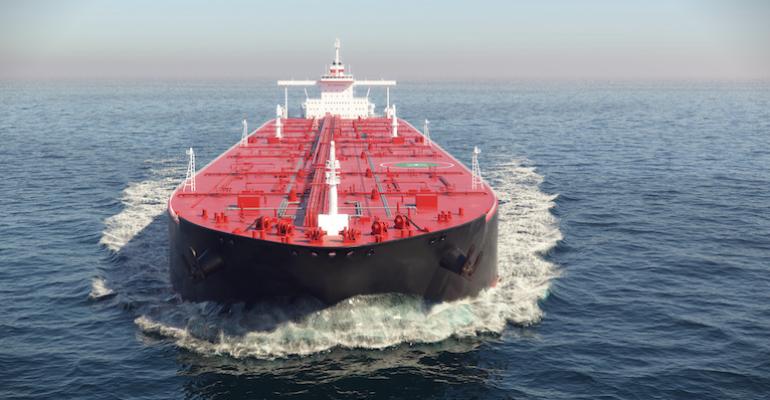The analysis will please the small group of VLCC owners who have embarked on something of a VLCC spending spree in recent weeks. Through the course of 2023, VLCCs on order had fallen to a long-time low. The few contracts that were placed were at significantly higher prices and had long lead times.
Since then, however, a series of new deals have been signed and options taken up by companies including Euronav, Magni Partners and Seatankers. Trading house Trafigura, meanwhile, has entered the sector with its first pair of VLCCs ordered at China’s Jiangsu New Hantong Ship Heavy Industry, a newcomer to large tanker construction.
Related: Trafigura orders two VLCCs in breakthrough for Jiangsu New Hantong
The petro-states of the Gulf will grow more powerful as the world consumes less petroleum, The Economist declared, explaining that they can produce lots of oil cheaply and have the capital needed to produce more. Predictions of future supply see more of it coming from them, and the faster the world decarbonises, the further their concentration will go, the report said.
Gulf crude has the advantage of being less carbon-intensive than other oil, both in carbon content and ease of extraction. The report highlights the UAE where ADNOC has committed $23bn to decarbonisation projects, including $4bn for shipping onshore carbon-free electricity to provide power for offshore operations.
Related: DSIC inks orders for up to 14 VLCC newbuildings
The money could have been used to expand output but the Emirates chose instead to produce oil more cleanly. The UAE would like to be seen as the supplier of choice in a climate-concerned world, the report said.
Not everyone is bullish about the outlook for big tankers, however. New York broker, Poten & Partners, urged caution recently. Noting the uptick in VLCC orders, the firm pointed out that large tankers are designed for long-haul routes – as oil demand growth is expected to switch from China to India, this will support the Suezmax and Aframax sectors.
However, more bullish analysts suggest that the age profile of the VLCC fleet, the inelastic supply of new ships, and continuing demand for long-haul crude from the Gulf to east and west, provide a sound basis for VLCC business models, at least for the foreseeable future.
Reference : https://www.seatrade-maritime.com/tankers/decarbonisation-set-boost-middle-east-oil-producers-and-vlccs

